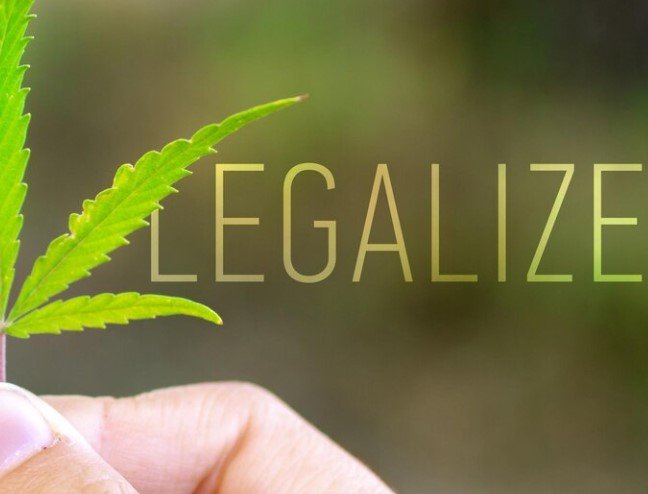2024 was another whirlwind year for cannabis legislation and litigation, with developments leaving industry insiders and advocates eager for what lies ahead. From rescheduling debates to market challenges, here are the key cases, policies, and trends shaping the cannabis landscape in 2025.
Rescheduling Cannabis: A Delayed Hearing Sparks Controversy
The year 2024 ended with lingering questions about cannabis rescheduling. Advocates celebrated when the Department of Health and Human Services recommended moving cannabis from Schedule I to Schedule III under the Controlled Substances Act. However, the December hearing to discuss this shift was delayed until 2025 after the DEA raised procedural concerns about participants and impartiality.
This delay has fueled further motions and debates. Notably, groups like Hemp for Victory argued against the DEA’s involvement in the process, citing alleged bias. While these claims were dismissed due to jurisdictional limits, the controversy has heightened scrutiny on the DEA’s role. Testimonies are set to begin in late January 2025, under the shadow of a new administration. President-elect Donald Trump’s historical opposition to cannabis reform leaves the industry questioning how his leadership might affect these proceedings.
The stakes are high. If cannabis is reclassified, it could revolutionize tax and business operations by exempting the industry from the burdensome Section 280E tax restrictions. However, this move would still leave significant regulatory hurdles under the CSA and FDA.

Canna Provisions Inc. v. Garland: A Push for Constitutional Clarity
The case of Canna Provisions Inc. v. Garland highlights the growing tension between federal and state cannabis laws. Plaintiffs argued that the Controlled Substances Act (CSA) oversteps constitutional bounds by criminalizing activities legal under state law. However, the district court dismissed the case, reinforcing Congress’s authority under the Commerce Clause.
The First Circuit heard the appeal in December, and the plaintiffs are expected to petition the Supreme Court. A ruling in their favor could challenge the federal government’s regulatory authority, potentially complicating rescheduling efforts. Legal observers are divided on whether the Supreme Court will agree to hear the case, but its implications could reverberate across the cannabis industry.
Intoxicating Hemp Products Face Uncertain Future
Hemp-derived intoxicating products like Delta-8 THC have become flashpoints for legal and regulatory battles. Loopholes in the 2018 Farm Bill allowed these products to flourish, leading states to impose varying levels of restriction or outright bans. California, for example, enacted emergency regulations to curb these products, prompting legal challenges.
With the 2018 Farm Bill set for reauthorization in 2025, Congress is poised to address these ambiguities. Draft proposals aim to redefine “industrial hemp” and impose stricter THC limits. However, the fragmented approach at the state level underscores the difficulty of achieving uniform regulation.
Key questions loom:
- Will California extend its ban on intoxicating hemp products beyond March 2025?
- Can legal challenges force states like New Jersey to relax their restrictions?
- How will the new Farm Bill address public safety concerns while supporting industry growth?
New York’s Cannabis Market: Growing Pains Continue
New York’s ambitious attempt to center its cannabis market around social equity has faced a rocky road. Despite issuing hundreds of licenses in 2024, legal battles and operational hurdles have delayed the industry’s growth. Most recently, a December 2024 injunction froze the state’s licensing process, citing concerns over transparency and compliance with local regulations.
While sales have surpassed $1 billion since legalization, the market remains far from its potential. The ongoing legal disputes could further hinder progress, making it one of the most closely watched state markets in 2025.
Supreme Court Weighs Civil RICO Claims in Cannabis Cases
The U.S. Supreme Court’s pending decision in Medical Marijuana, Inc. v. Horn could have sweeping implications for the cannabis industry. At issue is whether personal injury claims tied to economic damages can be brought under the RICO Act.
If the Court rules in favor of the plaintiff, the cannabis industry could face a surge in lawsuits seeking treble damages for alleged harms. While the immediate case involves a mislabeled CBD product, a broad ruling could open the door to more litigation across the sector. Regardless of the outcome, the case underscores the growing legal complexity facing cannabis businesses.
Consolidation Signals a Changing Industry Landscape
In late 2024, major mergers signaled a wave of consolidation in the cannabis industry. Florida-based Cansortium merged with RIV Capital, expanding its footprint to key markets like New York and Pennsylvania. Meanwhile, Vireo Growth secured $75 million in equity financing and acquired multiple operators, boosting its operations to seven states.
Consolidation reflects an industry maturing amid tightening competition and regulatory uncertainty. Larger operators with diverse portfolios may have a competitive edge, but the pace of mergers and acquisitions in 2025 will depend on market conditions and federal reforms.
Jane Smith is a seasoned article writer specializing in cannabis-related content. With a keen focus on the latest trends, research, and developments in the cannabis industry, she brings a fresh perspective to her writing. Jane’s insightful articles delve into the medicinal benefits, legalization efforts, and evolving culture surrounding cannabis. Her engaging storytelling and informative approach make her a trusted source for readers seeking accurate and up-to-date information on all things cannabis.








